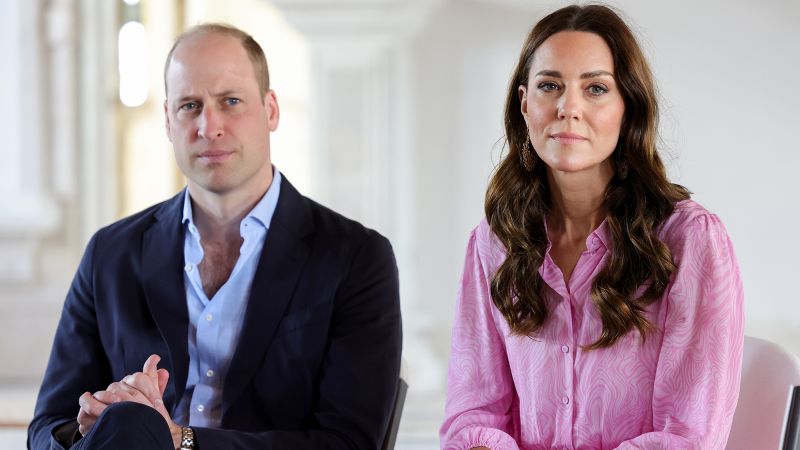
Why the royals have become the center of conspiracy theories
CNN
The decision of Prince William to pull out of an important family gathering on Tuesday, and the absence of an explanation, has engulfed the British royal family in a tidal wave of gossip, speculation and wild conspiracy theories.
The decision of Prince William to pull out of an important family gathering on Tuesday, and the absence of an explanation, has engulfed the British royal family in a tidal wave of gossip, speculation and wild conspiracy theories. Some of that is par for the course, for a family that has never been far from the headlines in the modern media age. But the discourse reached a frenzied level this week – particularly in the unchecked realms of social media. As the event - a memorial service for William’s late godfather, former King Constantine II of Greece - was getting underway at St. George’s Chapel in Windsor on Tuesday, royal insiders revealed the Prince of Wales would miss it due to a personal matter. William, a source told CNN, had called the Greek royal family to let them know of his last-minute change of plans. Skipping events doesn’t normally spark the sort of theorizing that has ensued. Go back two years and there simply wouldn’t have been the same level of online speculation that has been witnessed in recent days. But many have been left unsettled by the seemingly never-ending run of recent royal heartache and health scares. The death of Queen Elizabeth II, and both King Charles III and Catherine, Princess of Wales getting ill soon after, plus the fact that the public haven’t seen Kate since Christmas Day, have all contributed to the speculation. The series of devastating blows was further compounded with the sudden death of Thomas Kingston, the husband of the King’s cousin Lady Gabriella, at the age of 45. It is understood that William’s non-attendance was not tied to the news of Kingston’s death, which was revealed publicly on the same day as Constantine’s memorial.













